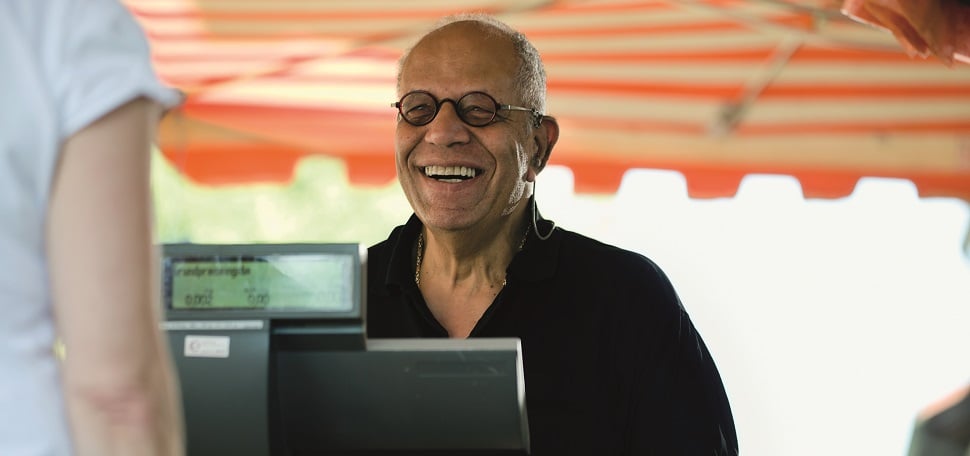Civic Participation and Employment

Older people do not stop contributing to their communities once they reach a certain age. In fact, the paid work of older Londoners contributes £47 billion to the capital’s economy each year. Furthermore, many older people play an active community role in retirement, providing voluntary work for their families and communities. By engaging in paid and voluntary work, older Londoners contribute 18% of their city’s total economy each year, with 39% of older Londoners taking part in regular volunteer work.
Volunteering and employment can be incredibly beneficial for older people’s mental and physical wellbeing, helping them to keep active and to meet new people.
An Age-friendly City must provide options for older people to continue to contribute to their communities, through paid employment or voluntary work if they so choose. An Age-friendly City will also enable its older residents to be engaged in the political process, whether by voting, protesting, or attending meetings and focus groups.
Volunteering and Employment Opportunities
Despite the importance of volunteering and paid work, there can be many barriers for older people, ranging from finding out about vacancies, to being able to make the times requested, to discovering a role that suits their skills. In the later instance, an Age-friendly City should hold many opportunities for older citizens to be trained in relevant skills.
To guarantee that older people are able to take part in voluntary activities, cities must ensure that they have well-developed volunteer infrastructure, such as volunteer resource centres or well-established voluntary organizations.
Another suggestion from the WHO Age-friendly Cities Guide is to make sure that older people are able to access entrepreneurial and self-employment opportunities, ranging from daily work such as running shops to more ad hoc tasks such as handicrafts and gardening.
An additional barrier comes from the challenges faced when traveling to and from voluntary and paid jobs, as well as the physical difficulty in completing certain tasks assigned to them. Volunteers must have their expenses covered when fulfilling their roles, including travel and foods costs. London’s Freedom Pass scheme puts the city ahead of many other communities when it comes to helping older volunteers and workers to travel to their organisations.
Encouraging Civic Participation
While many older people are interested and willing to engage in civic functions, there can barriers that stop them from attending. Suggestions for improving civic engagement include: improving accessibility at events; reserving seats for older people; and making sure that information about civic activities is released in a format that can be accessed by people of all ages.
It is also important that older people are not continually separated out into specific “older people’s groups” and are still able to make their voices heard at intergenerational forums.
Valuing Older Londoners' Contributions
Reports of age discrimination in the workplace are widespread even though older workers are not necessarily less healthy, less educated, less skilful or productive than their younger counterparts. This can result in disrespect to current employees or even a flat refusal to hire older workers.
In addition, the Women and Equalities Committee have argued that the talents of more than a million people aged over 50 who want to work are being wasted because of discrimination, bias and outdated employment practices.
A key part of an age-friendly London will be to ensure the city understands and appreciates the valuable contributions older Londoners make in all forms of life.
Click here to keep up-to-date with our Age-friendly London campaign!
